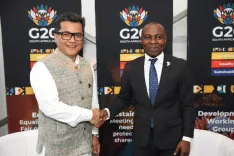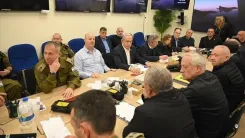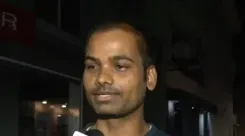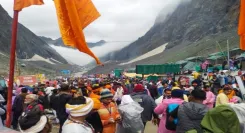Has Iran Agreed to IAEA Visit Soon?
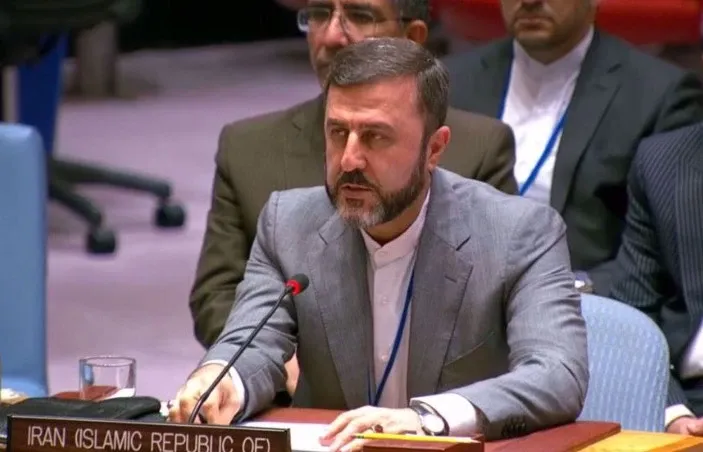
Synopsis
Key Takeaways
- IAEA visit to Iran confirmed in two to three weeks.
- Focus on discussing cooperation framework, not site visits.
- Iran's nuclear policy emphasizes self-sufficiency in uranium enrichment.
- Iran warns against snapback sanctions from European nations.
- Possibility of Iran withdrawing from the NPT remains a consideration.
United Nations, July 24 (NationPress) Kazem Gharibabadi, the Iranian Deputy Foreign Minister for Legal and International Affairs, announced that Tehran has accepted a visit from a technical team of the International Atomic Energy Agency (IAEA), scheduled to occur in two to three weeks.
The IAEA delegation's visit to Iran is set to take place "very soon, in two to three weeks," Gharibabadi informed reporters on Wednesday.
He mentioned that the Atomic Energy Organisation of Iran is currently evaluating the impact on its nuclear facilities and that the IAEA delegation will focus on discussing the framework for cooperation rather than visiting the nuclear sites.
Gharibabadi further noted that any new negotiations between the US and Iran would be conducted indirectly, as reported by Xinhua.
On Monday, Gharibabadi engaged in a special meeting with ambassadors from the Group of Friends in Defence of the Charter of the United Nations, where he elaborated on the recent acts of aggression by Israel and the US against Iran, as stated by the Iranian Foreign Ministry.
He also referred to a bill passed by Iran's Parliament that mandates the suspension of all cooperation with the IAEA, indicating that its resumption would hinge on the safety and security of Iran's nuclear facilities and personnel.
"As a result, we have consented to the visit of the IAEA technical team to Tehran within the next two to three weeks to establish the terms of cooperation," he stated.
The senior diplomat termed this decision as another sign of goodwill from Iran, despite its discontent with the IAEA's actions.
"We hope this initiative will be taken positively, and that they will appreciate such cooperation and goodwill," he commented.
Tensions between Iran and the IAEA have escalated under the current Secretary General, Rafael Grossi.
This conflict intensified after Grossi laid the groundwork for an anti-Iran resolution by presenting allegations that Iran deems unfounded, along with his refusal to denounce the US-Israeli actions against its nuclear facilities.
Iran has accused Grossi, who has frequently communicated with Israeli officials, of relying on fabricated documents from the regime to substantiate claims against its peaceful nuclear endeavors.
In discussing Iran's nuclear policy, Gharibabadi reiterated that Iran will persist in enriching uranium according to its own requirements.
"Iran will enrich uranium based on its own needs. We must possess the capability to fulfill all our necessities," he emphasized.
He dismissed the idea of a voluntary enrichment freeze as a goodwill gesture in negotiations with Western nations, pointing to past disappointments and warning against depending on third-party enforcement.
"We have bitter experience in this area and cannot rely on a third-party enforcer," he stated, referring to the refusal of Western and other nations to provide enriched uranium for the Tehran nuclear research reactor.
Regarding threats from the three European members of the 2015 nuclear agreement to activate the snapback mechanism to reinstate anti-Iran sanctions, Gharibabadi cautioned that Iran would respond firmly to such a decision.
"In reality, the Europeans do not have the authority to initiate the snapback mechanism. However, should they proceed, Iran will not remain passive. We will react. We are compelled to respond," he asserted.
The diplomat also indicated that he cannot eliminate the possibility of Iran opting to withdraw from the NPT, mentioning that this decision had previously been contemplated by Iran's former administration.
"That option remains available. Nonetheless, other measures that Iran may consider are still under assessment by officials in Tehran. Undoubtedly, there will be a reaction, part of which has already been determined," the diplomat concluded.

